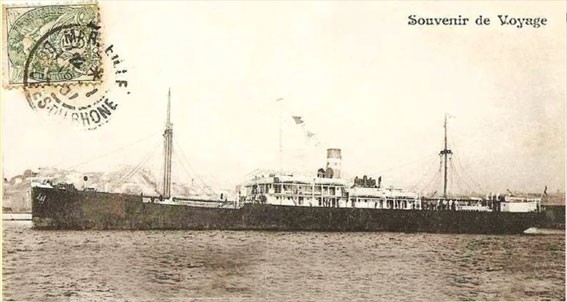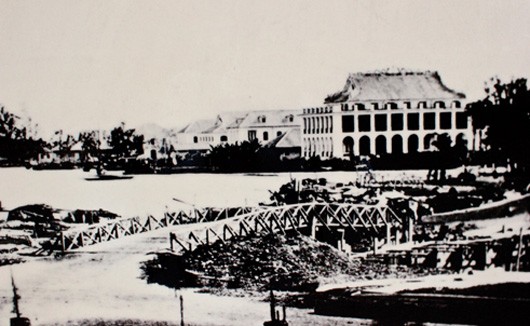(VOVworld)- 105 years ago, President Ho Chi Minh left Vietnam on a trip abroad to seek a path for national liberation. He went with nothing but a great patriotism and returned with a bright future for the Vietnamese nation.
 |
| Latouche Treville ship, where young patriot Nguyen Tat Thanh (who later became President Ho Chi Minh) embarked on a journey for national liberation (Photo: archive) |
On June 5, 1911, Ho Chi Minh embarked on the Latouche Treville ship, which departed Nha Rong wharf in Saigon (now Ho Chi Minh city) for a journey around the world. Wanting to study and experience capitalism and then return home to help his compatriots, Ho Chi Minh chose the West, from where great ideas and revolutions had originated, as his destination.
Correct starting point
Ho Chi Minh travelled all over the world for 30 years in his quest for national liberation. Nguyen Thuy Duc, Acting Director of Ho Chi Minh museum, said his patriotism and anti-imperialism grew from his personal relationships: “Departing his homeland, he brought with him Vietnamese patriotism and revolutionary traditions, which were nurtured in his family. The highlights of President Ho Chi Minh’s journey were youth with great aspirations for national interests and integration with the world for development. He associated himself with labourers and from this experience became committed to human rights, including the right to pursue happiness”.
Stories of the days Ho Chi Minh experienced have touched many’s hearts. Seeking the path to Vietnam’s liberation, he worked as a cook’s helper on a ship, a photographer, a snow shoveler and a waiter, and spent freezing nights in Europe with only a warm brick for a heater. He never flinched from these difficulties.
 |
| Nha Rong Wharf in Saigon (now Ho Chi Minh city) (Photo: archive) |
Putting national interests first
Dr. Vu Minh Giang, Chairperson of the Council for Science and Training at Hanoi National University, says will and perseverance were the main factors that enabled Ho Chi Minh to overcome the hardships of his 30 years abroad. Another factor was putting national interests first: “The decisive factor in his successful quest for national liberation is summed up in the word “Nation”. At a congress to establish the Communist Party of France in 1920, Ho Chi Minh using the alias Nguyen Ai Quoc, delivered an important statement, affirming support for the Comintern III and Marxism because they advocated colonized nations like Vietnam. Any Marxist theory that did not support the people of colonized nations failed to touch the heart of Nguyen Ai Quoc. So the most important factor was that he was a patriot and worked for national interests.”
After 3 decades of wandering abroad, patriot Nguyen Ai Quoc found the path he was seeking for the Vietnamese nation. June 5, 1911 has become a significant milestone in Vietnam’s history. Dr. Le Dinh Nam, Deputy Head of the Department of Ho Chi Minh’s Thought at the Academy of Journalism and Communication, said national independence combined with socialism chosen by President Ho Chi Minh, has proved to be the sole correct path guaranteeing a brighter future for Vietnam. His journey for national salvation, his great ideas, and simple, noble lifestyle provide a shining example. Dr. Le Dinh Nam said: “The Communist Party of Vietnam acknowledged the role of Ho Chi Minh’s thought a long time ago. Lately, our Party has realized the need of studying his thought and moral example”.
Ho Chi Minh’s wise choice of path has inspired the Vietnamese to continue upholding national independence and socialism during the current national renewal, industrialization, and modernization.